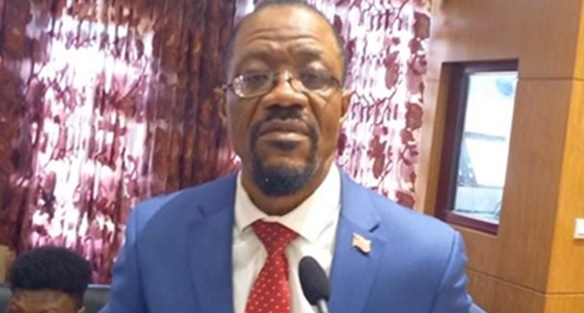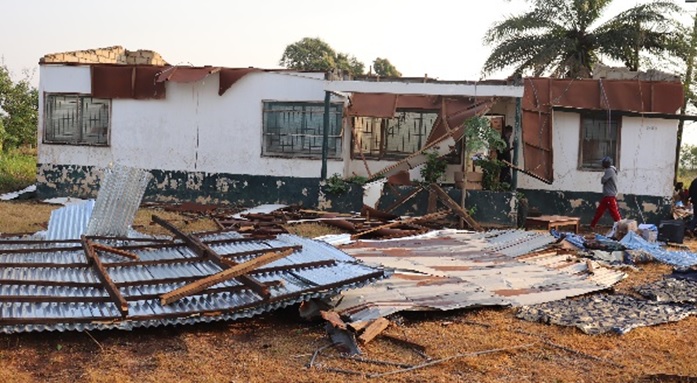MONROVIA, LIBERIA – President Joseph Nyuma Boakai and his Unity Party-led government are celebrating their first year in office, having marked the milestone on Wednesday, January 22, 2025. However, what should have been a moment of triumph has been overshadowed by a growing list of corruption allegations that have dominated public discourse. As the country awaits the President’s State of the Nation Address (SONA) on Monday, January 27, 2025, many Liberians are calling for accountability and answers to the administration’s perceived failures in tackling corruption.
The Boakai administration came to power with a promise to restore integrity to governance and uproot Liberia’s entrenched culture of corruption. However, one year into his presidency, critics argue that President Boakai has yet to deliver on these lofty commitments. Among the most glaring controversies was the July 2024 audit of the Central Bank of Liberia (CBL), which revealed unauthorized loans totaling $80 million allegedly used for government salaries. The audit also uncovered severe irregularities in contract awards and financial mismanagement. While Central Bank Governor Jolue Aloysius Tarlue was suspended following these revelations, no further actions have been taken to ensure systemic reforms.
The timing of these scandals could not be more politically sensitive. During the anniversary celebrations, members of the Unity Party highlighted the administration’s supposed achievements, including infrastructure developments and efforts to stabilize the economy. Yet, the ongoing allegations of corruption threaten to overshadow these narratives. The revelations about “off-budget” expenditures, over $15 million reportedly misappropriated for unauthorized uses such as vehicles for the President and Vice President, a VIP lounge, and covert National Security Agency operations have drawn criticism from civil society and opposition parties.
Liberians are particularly alarmed by reports that President Boakai may have personally benefitted from public funds. Allegations that the National Social Security and Welfare Corporation financed the purchase of luxury vehicles ahead of his inauguration have fueled public outrage. Such revelations have amplified doubts about the administration’s commitment to transparency and accountability.
As Liberians reflect on the administration’s first year, many are questioning the credibility of President Boakai’s anti-corruption pledge. The Center for Transparency and Accountability in Liberia (CENTAL) released a damning report highlighting not only financial misconduct but also the questionable appointments of individuals with tainted records. Figures like S. Tornorlah Varpilah, who was previously ordered to restitute public funds, and Daniel Johnson, wanted by U.S. authorities for defrauding USAID, have been appointed to key positions under Boakai’s leadership. This trend has generated concern about nepotism and political patronage undermining Liberia’s governance.
Moreover, the persistence of nepotism in public service appointments has drawn the ire of ordinary Liberians, who feel that merit and competence have been sacrificed for political loyalty. These practices, critics argue, perpetuate systemic corruption and discourage capable professionals from contributing to national development.
As the country prepares for the SONA, the expectations are high. Many Liberians are demanding that President Boakai use this platform to address the allegations head-on and provide a clear roadmap for tackling corruption. Civil society organizations are calling for measures such as mandatory asset declarations by public officials, robust enforcement of financial management laws, and the prosecution of those implicated in financial misconduct.
President Boakai’s leadership is also under international scrutiny. Development partners, including the United States and the European Union, have made it clear that future aid and investment will depend on tangible progress in governance and anti-corruption efforts. Liberia cannot afford to lose the support of its international allies, especially given its fragile economy and widespread poverty.
The anniversary celebrations, while significant, have been met with mixed reactions. While the Unity Party touts its achievements, the public mood is one of growing frustration and impatience. Liberians are increasingly disillusioned with the pace of reforms and fear that the administration may fall into the same patterns of mismanagement that have plagued previous governments.
President Boakai’s first year in office was meant to set the tone for his administration’s legacy. Instead, it has raised questions about whether the 82-year-old leader has the political will and capacity to deliver the transformative change he promised. The State of the Nation Address now presents a crucial opportunity for him to rebuild public trust and demonstrate leadership.
The Boakai administration’s second year begins under a cloud of skepticism and uncertainty. The President must act decisively to address the corruption scandals, hold perpetrators accountable, and restore faith in his government. Failure to do so could have far-reaching implications, not just for his legacy but for Liberia’s stability and development.
For Liberians, the stakes are higher than ever. They are demanding accountability, transparency, and action—not just words. As the celebrations fade and the nation looks ahead, President Boakai must confront the realities of governance and prove that his administration is not just another chapter in Liberia’s long history of broken promises.







